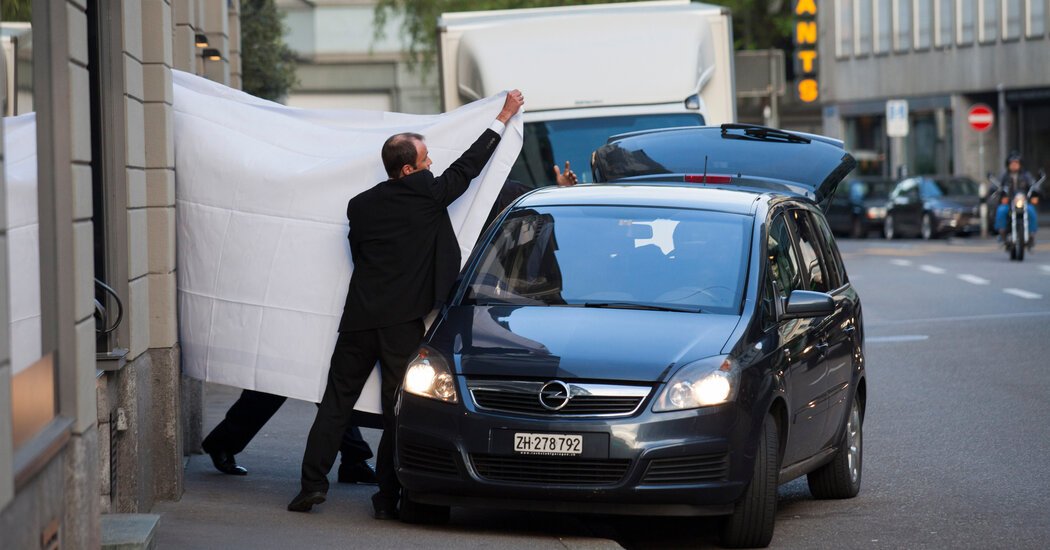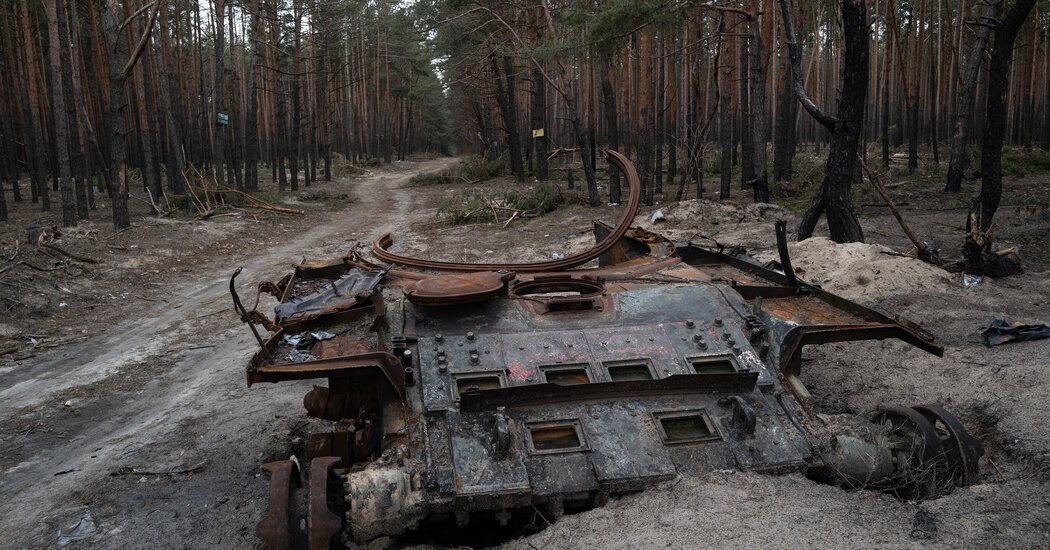Nearly a decade after police officers marched world soccer officials out of a luxury hotel in Zurich at dawn, revealing a corruption scandal that shook the world’s most popular sport, the case is at risk of falling apart.
The dramatic turnabout comes over questions of whether American prosecutors overreached by applying U.S. law to a group of people, many of them foreign nationals, who defrauded foreign organizations as they carried out bribery schemes across the world.
The U.S. Supreme Court last year limited a law that was key to the case. Then in September, a federal judge, citing that, threw out the convictions of two defendants linked to soccer corruption. Now, several former soccer officials, including some who paid millions of dollars in penalties and served time in prison, are arguing that the bribery schemes for which they were convicted are no longer considered a crime in the United States.
Emboldened by the vacated convictions, they are asking that their records be wiped clean and their money returned.
Their hopes are linked to the September cases, in which the two defendants benefited from two recent Supreme Court rulings that had rejected federal prosecutors’ application of the law at play in the soccer cases and offered rare guidance on what is known as honest services fraud. The defendants in the soccer trial had been found to have engaged in bribery that deprived organizations outside the U.S. of their employees’ honest services, which constituted fraud at the time. But the judge ruled that the court’s new guidance meant that those actions were no longer prohibited under American law.
That blow to the case, which federal prosecutors in Brooklyn are contesting, could turn the story of world soccer’s deep-seated corruption — detailed in a 236-page indictment, and proved through 31 guilty pleas and four trial convictions — into one equally about the long arm of American justice reaching too far.
“It’s quite significant,” said Daniel Richman, a former federal prosecutor and professor of law at Columbia University, “since the judge rejected the government’s basic theory.” He called the opinion “surprising but well reasoned.”
Prosecutors for the United States attorney’s office for the Eastern District of New York are preparing to push back. “This office will vigorously defend the convictions,” a spokesman, John Marzulli, said on Thursday, “and will not remain on the sidelines if the wrongdoers seek to retake the millions of dollars of ill-gotten gains.”
In a court filing this month, prosecutors argued that the federal judge who presided over the FIFA cases, Pamela K. Chen, had misread the Supreme Court. The foreign defendants, they said, had “substantial U.S. ties and activities” and had shown they knew what they did was a crime.
The legal debate comes amid growing concern that global sports organizations like FIFA, the global soccer governing body headquartered in Switzerland, operate in a world of their own, untouchable to the authorities. The systemic corruption among global soccer’s top leaders was widely documented, but until the Justice Department built its complex case and filed indictments in 2015, no government had risked taking it on so ambitiously, with charges that touched three continents.
Once public, the FIFA investigation became one of the largest cross-border corruption cases in U.S. history. It required cooperation from the authorities abroad, who helped make arrests and extradite defendants to the United States, and revealed decades of bribery; accusations of secret contracts, cash drops and courtroom intimidation; and official confirmation that millions of dollars in cash had swung the votes to award the 2018 and 2022 World Cups to Russia and Qatar.
The case was a boon to white-collar lawyers and a shot across the bow of international sports. It boosted the profiles of American prosecutors, who were praised for creatively applying U.S. law on honest services wire fraud, which prohibits people from betraying their employers by engaging in bribery and kickback schemes that funnel money into their own pockets. The legal strategy was widely seen as a novel way to go after foreign commercial bribery.
The charges led to an overhaul of FIFA’s leadership, including the ouster of its longtime president Sepp Blatter, and made celebrities out of key players in the case. Loretta Lynch, the United States attorney general at the time, was nicknamed FIFA-Jägerin, or the FIFA hunter, by the German news media.
The case was far from the first time the Justice Department filed complicated charges with global angles. But its scope and outsize focus on other parts of the world drew questions of why federal prosecutors in Brooklyn had chosen to pour years of resources into the investigation. As justification, prosecutors pointed to the defendants’ use of U.S. banks and, more broadly, the “affront to international principles” that Ms. Lynch said their schemes represented.
Now, as American prosecutors prepare to defend their work before a federal appeals court, the idea that U.S. law could apply where others were unable, or unwilling, to act is in question. That has opened the door to a dramatic possibility: that prominent sports officials and businessmen who were found to have solicited or accepted bribes could see their convictions set aside and their fortunes returned.
In an interview this past week, the former Paraguayan soccer official Juan Ángel Napout said he had been convicted to set an example. “Why me?” he said. “They needed somebody, and it was me.”
Mr. Napout paid over $4 million to the United States government, which has so far forwarded more than $120 million in forfeited money to FIFA and pledged to release tens of millions more. Back home in Asunción since his release from prison last summer, Mr. Napout, 65, is asking the U.S. to vacate his conviction and return his money.
Mr. Napout was incarcerated for longer than anyone else implicated in the sprawling case, his once-luxurious lifestyle upended as he became a cook in a Florida prison. He said he had not considered an appeal until hearing of the acquittals in September, and is proceeding only at the behest of his family “so my record will go clean.”
Even as the government’s appeal of the recent acquittals is pending — an open question to be resolved before Mr. Napout’s request is addressed — he is not alone in seizing the chance to seek a clean slate.
In recent weeks, José Maria Marin, a former Brazilian soccer official who also served time in prison and paid millions in penalties, and Alfredo Hawit, a former top soccer official from Honduras who pleaded guilty and cooperated with the government, have made similar requests.
In their legal filings, they are reprising some of the arguments made when they were first charged, when lawyers objected to what they called U.S. prosecutors’ overzealous use of a vague law. At the time, some emphasized that, in countries like Brazil, paying bribes in a private business transaction to secure a deal or contract is not uncommon — or illegal.
As the legal fight continues, prominent adversaries in the case have moved on. The soccer organizations implicated have new leaders. In 2019, four years after Ms. Lynch issued a stern warning to as-yet-unindicted figures in the case — “You will not wait us out” — she joined the American law firm Paul, Weiss and became a booster of the new FIFA. At least twice in recent years, she has addressed FIFA directly, praising the organization’s “renewed commitment to transparency and ethical behavior.”
Ms. Lynch did not respond to a request for comment.
But recently, FIFA has come under renewed scrutiny for bypassing standard processes, as when it effectively awarded the valuable hosting rights for the 2034 World Cup to Saudi Arabia without competitive bidding. FIFA’s president, Gianni Infantino, who ascended after Mr. Blatter’s ouster, has explored extending limits on his time in the top job.
The result of the new appeals, to be argued before the U.S. Court of Appeals for the Second Circuit, could have implications not only for convicted defendants like Mr. Napout, but also for those who were charged but have remained at large, safely out of reach of United States authorities. They include the longtime FIFA power broker Jack Warner of Trinidad and Tobago; the Argentine television executives Hugo and Mariano Jinkis; and the former Brazilian soccer chiefs Marco Polo del Nero and Ricardo Teixeira.
At least $200 million paid by those convicted is also at stake; a portion of that has been pledged to FIFA, which was deemed a victim of the corruption in its own house, and earmarked for causes including soccer programs for women, youth and disabled people. FIFA said $50 million had been allocated to projects already.
Paul Tuchmann, a former prosecutor on the case now at the law firm Wiggin and Dana, called the decision acquitting two defendants “a hiccup,” but said that no matter what the appeals court decides, “you can’t go back in time and erase the impact.”
Still, Mr. Tuchmann added, undoing the government’s work would have broad consequences — within global sports and beyond it.
“For people with a certain amount of wiliness, they’ll understand the U.S. criminal justice system isn’t going to touch them,” he said. “And I think it’s unfortunate.”
Ken Bensinger contributed reporting.





